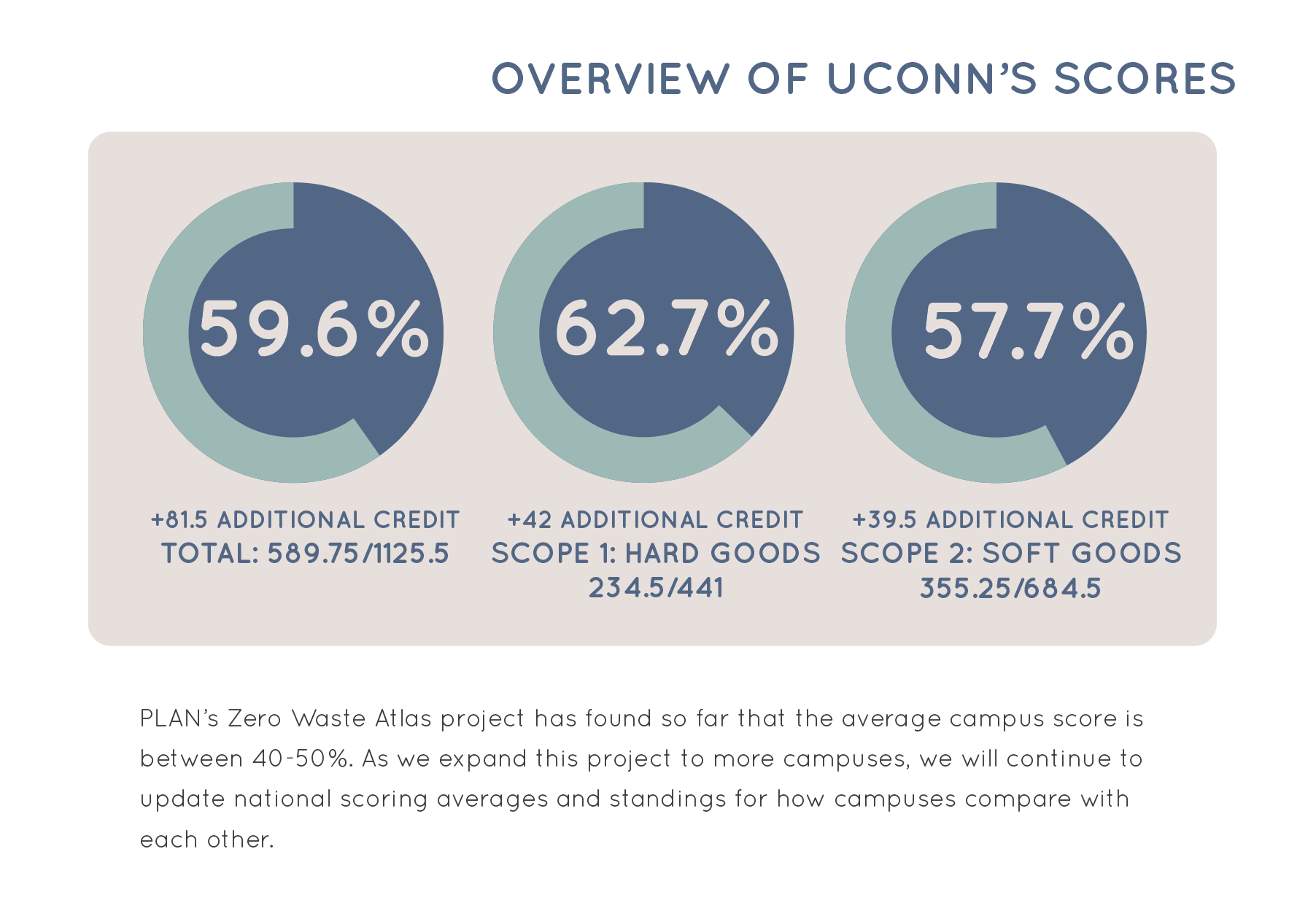PLAN Zero Waste Stage 1 Report
UConn is one step step closer to outlining its path to a waste-free future! In the Spring of 2020, the Office of Sustainability partnered with the Post-Landfill Action Network (PLAN) to conduct a large-scale audit of our Storrs campus’ waste management practices. Our intern team interviewed staff representing a wide range of departments at UConn to get a clear picture of how and where waste is generated across campus on a day-to-day basis. As a result, PLAN released its Stage 1 report in July 2020, outlining UConn’s strengths and weaknesses in the realm of waste reduction and management. The final report was published in November 2020, which provides specific recommendations for improvement. In Spring 2021, the UConn Zero Waste Workgroup was formed and held its first meeting with campus stakeholders. The Zero Waste Workroup is organized under the UConn Environmental Policy Advisory Council (EPAC) and is comprised of representatives from the various departments consulted during the PLAN Zero Waste Report interviews. The workgroup will use the PLAN Stage 1 Report recommendations to develop a concrete strategy for our campus to achieve zero waste.


Key Recommendations from the PLAN Stage 1 Report:
- Assemble Zero Waste Task Force/Committee with campus stakeholders & host semi-annual meetings.
- With the Committee, create a Zero Waste Roadmap that directly informs the University’s Sustainability Goals and Master Plan. Use the Phase I Report as a foundational guide.
SCOPE 1: Hard Goods
- Expand campus capacity in terms of both infrastructure and logistics to collect, manage, and reallocate hard-to-recycle materials (HRM).
- Establish and communicate policies for surplus property management across all campus departments.
- Establish and communicate sustainable procurement policies to guide departments with purchasing hard goods related to electronics and construction.
- Increase opportunities to share and reuse hard-to-recycle materials (i.e. art supplies, office supplies, residential hall furnishings) across campus by establishing free spaces, shared community spaces, a campus free or thrift store, move-out swap/sale, repair fairs, etc.
-
-
SCOPE 2: Soft Goods
- Explore options to limit disposable dining ware usage, such as by expanding reusable dining ware to all food service facilities on campus, or developing a campus-wide reusable to-go ware program that is universally accepted by all facilities.
- Expand capacity for food recovery programs and food waste minimization efforts to increase on-campus food security.
- Establish campus-wide procurement policies for soft goods material management in line with what items the campus can accept in its composting stream.
- Limit single-use packaged items and establish systems for bulk service and bulk purchasing.
- Expand capacity of campus collection of compostable materials beyond food waste.
- Establish bin and signage standardization guidelines, as well as a plan for implementing this system across campus.
-